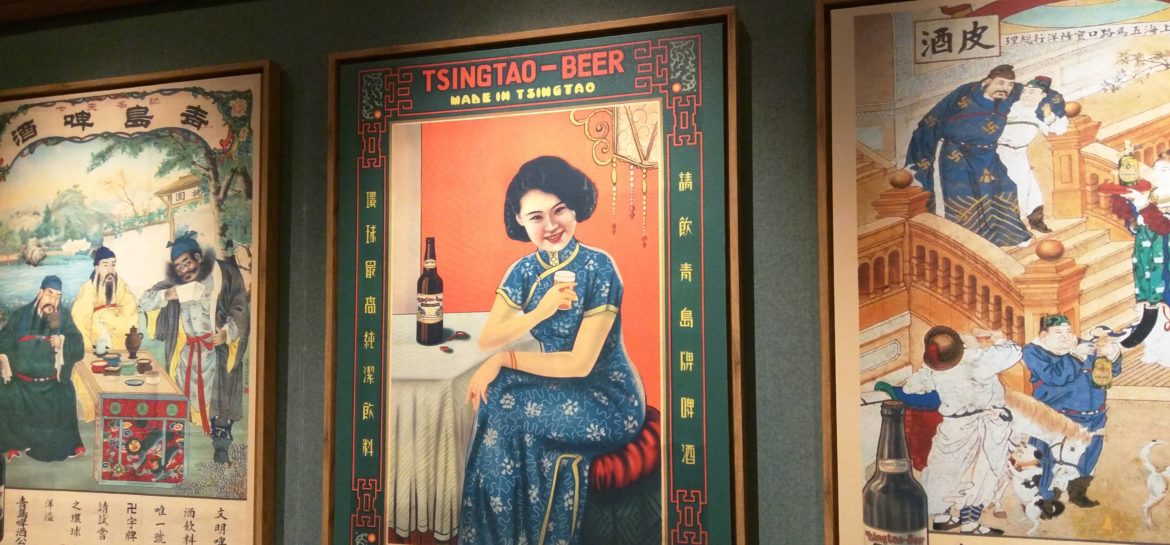
A city which many people outside of China would not be able to find on a map, Qingdao sits on the northeast coast of China a few hours away from Beijing and 7 hours by train from Shanghai. In 2009 it was listed as the most livable city in all of China. Being famous for its beer, and also as the hometown of a good friend of ours, we decided to take the train for a long weekend visit in early July and discovered a town that will forever be in our hearts.
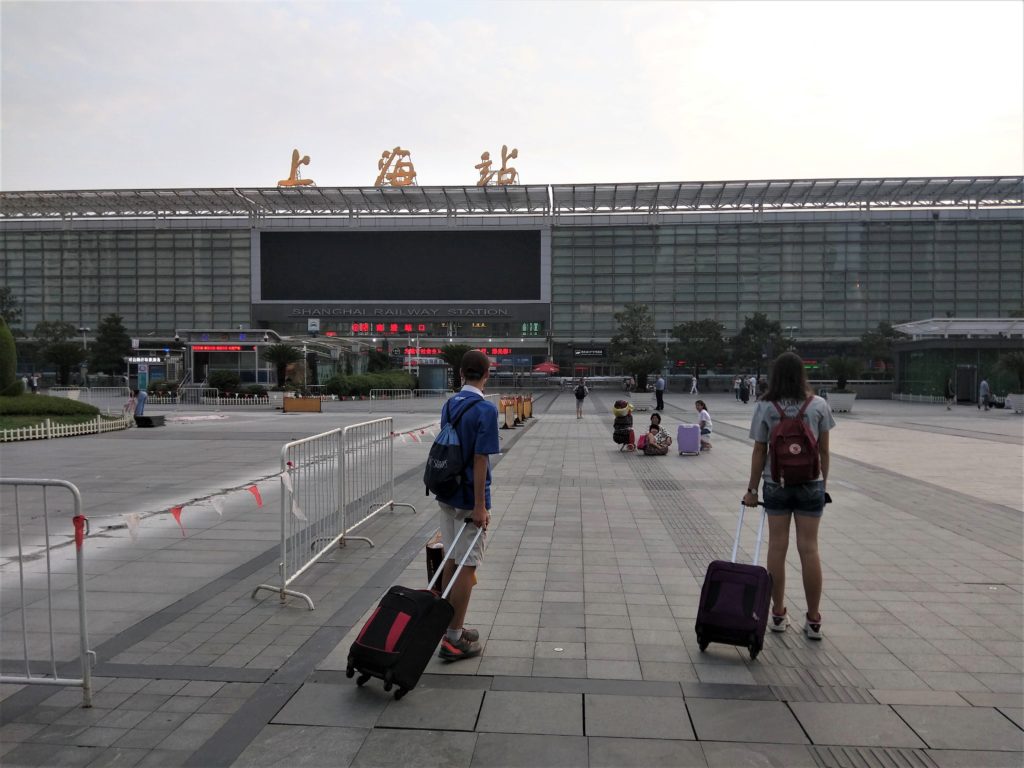
Qingdao is a port city with a lot to offer: a temperate climate, plenty of sunshine, clean air, swimmable beaches, and majestic mountains. With its decidedly California like atmosphere, complete with laid back locals, some say it is the example of “real” China. From our travels in the country, on the outside it actually seems like the least Chinese town we’ve visited. Many times during our weekend stay we didn’t feel like we were in China at all. But we were soon to realize the people are the star attraction to this city and that they reflect the heart of the Chinese people.
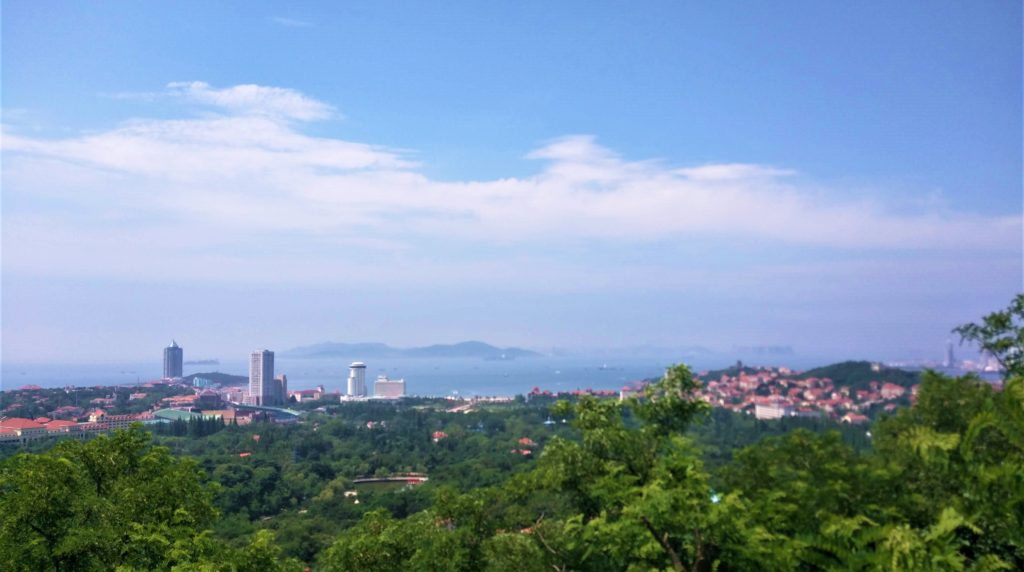
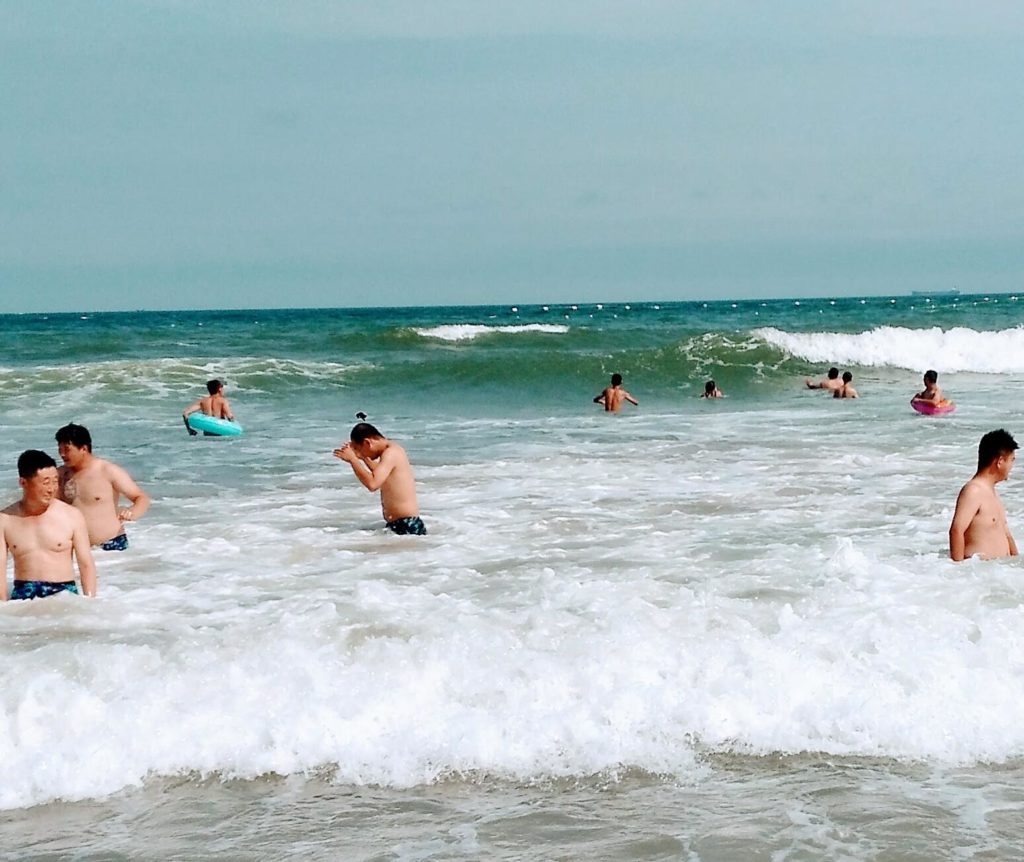
Undeniably attractive to many foreign powers, Qingdao saw both colonization and occupation during the tumultuous early decades of the 20th century. Germans took opportunity to colonize the area with a concession granted from 1898 – 1914. Concessions were an establishment of colonialism that allowed a foreign entity to control an area of a country for trade and commerce as a “concession” on the part of the colonized country to avoid outright surrender and conquest by the invading country. The German’s left a lasting legacy in the port city with the founding of a local brewery that now produces a familiar beer throughout China and the world – Tsingtao Beer.
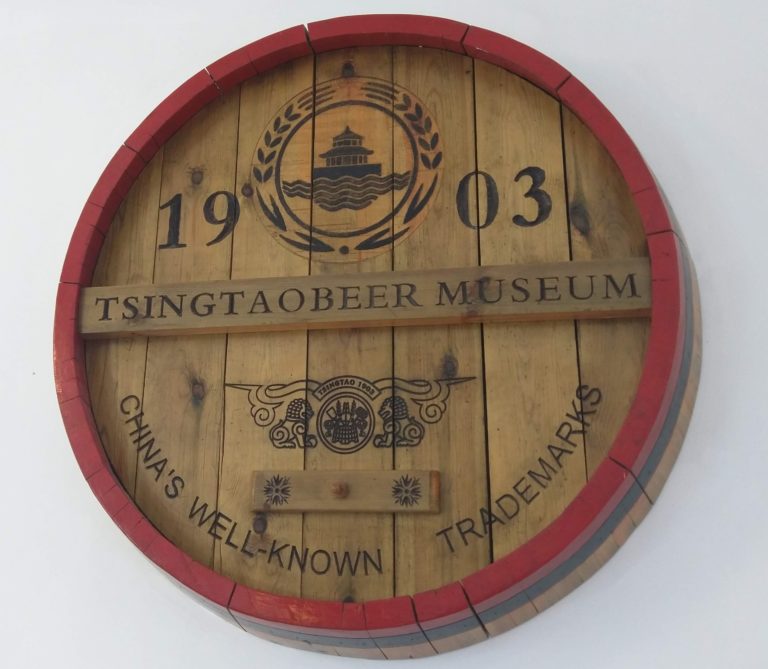
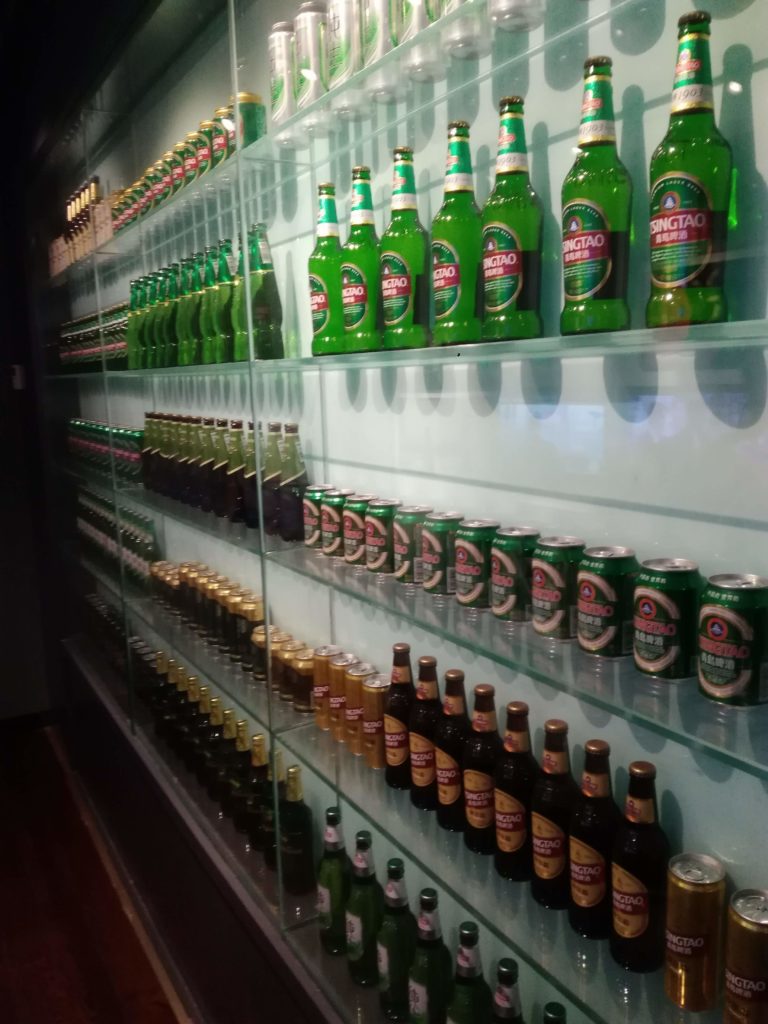
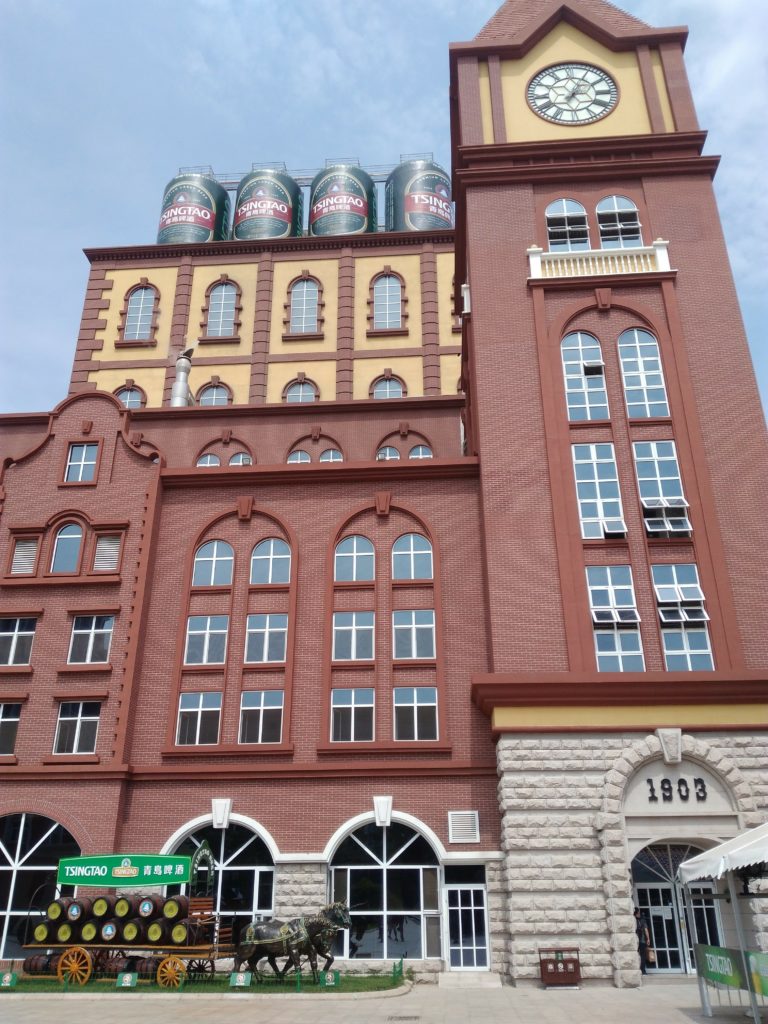
As beer is so plentiful in this town, they have a practice of distributing it in plastic bags for you to carry or drink from on the street.
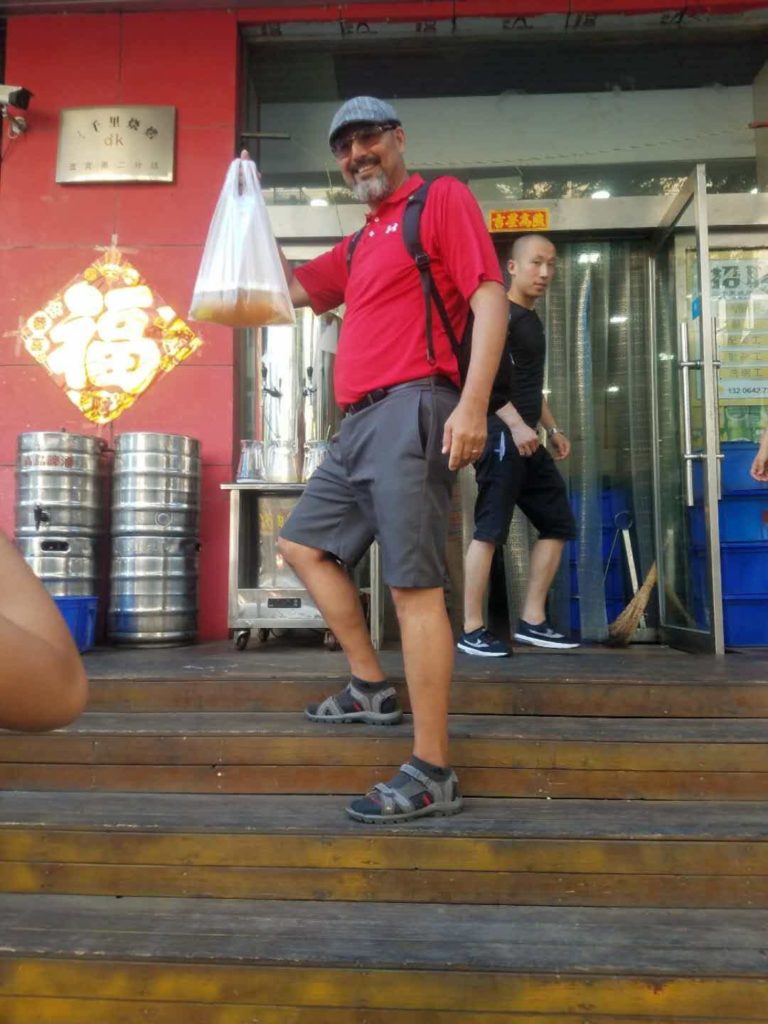
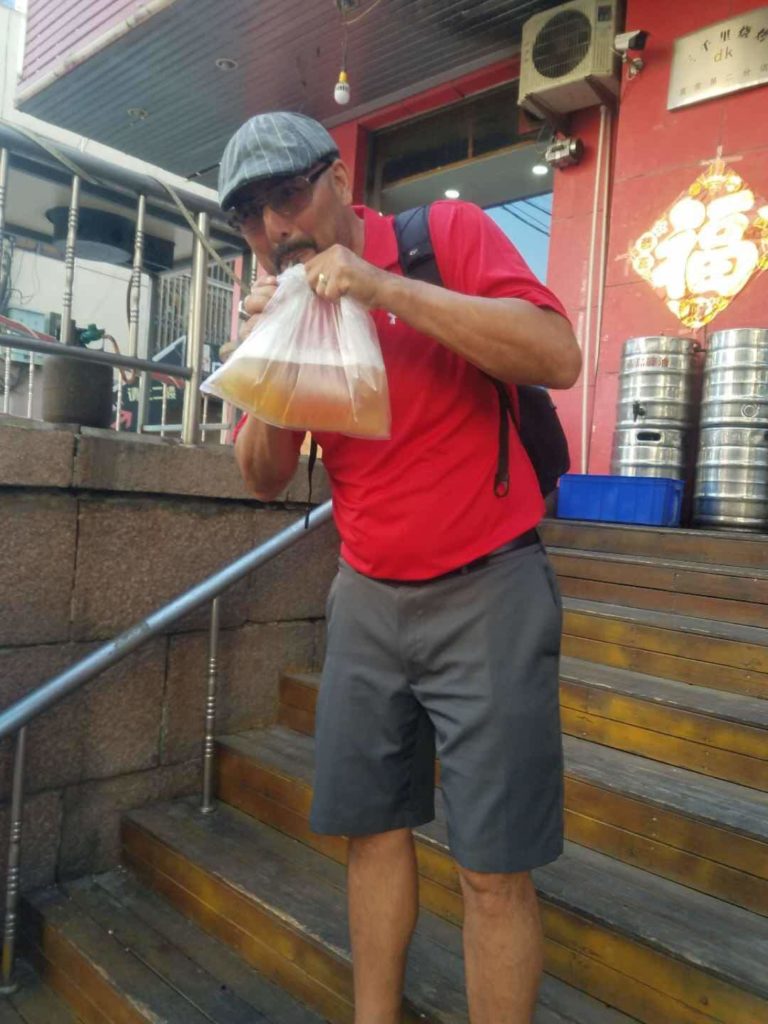
After the start of WWI, which saw Germany’s focus shift to Europe, Japan invaded and occupied the city from 1914 – 1922. More turmoil occurred during WWII and the Japanese re-invasion and then Chinese Civil War. Now in a calmer environment, the city was recently the site of the 2008 Olympic sailing competitions and maintains a large international sailing center. This sailing park and the city’s colorful night skyline with miles and miles of ocean-side walkways and beautiful sand beaches attract tourists throughout the summer.
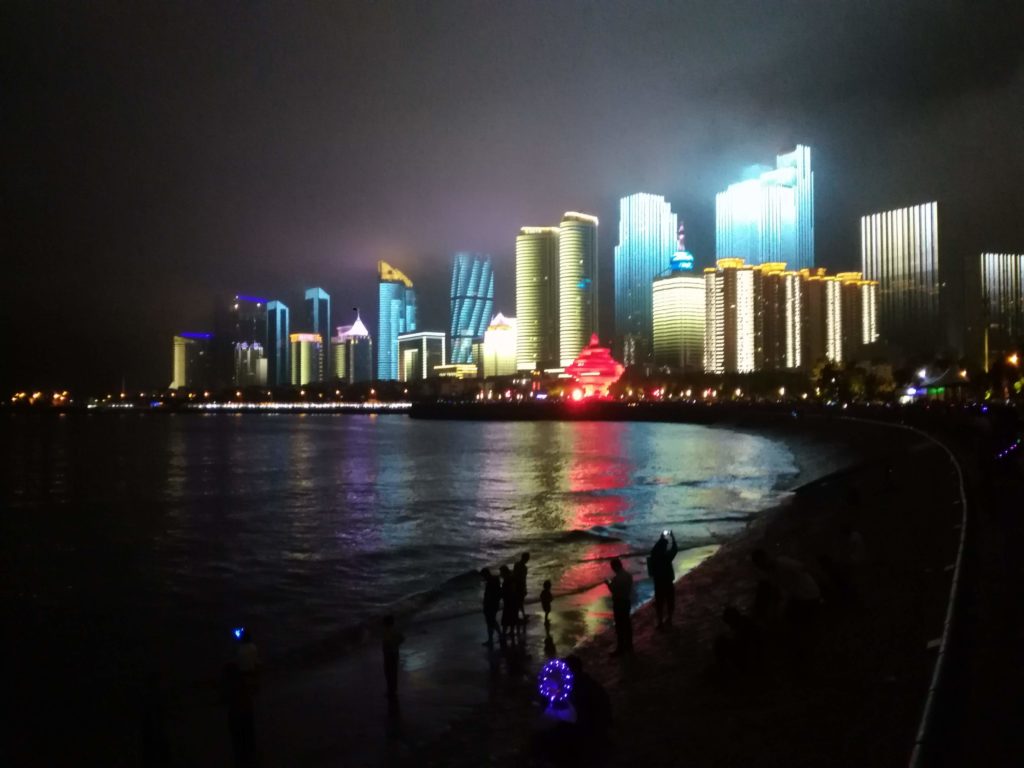
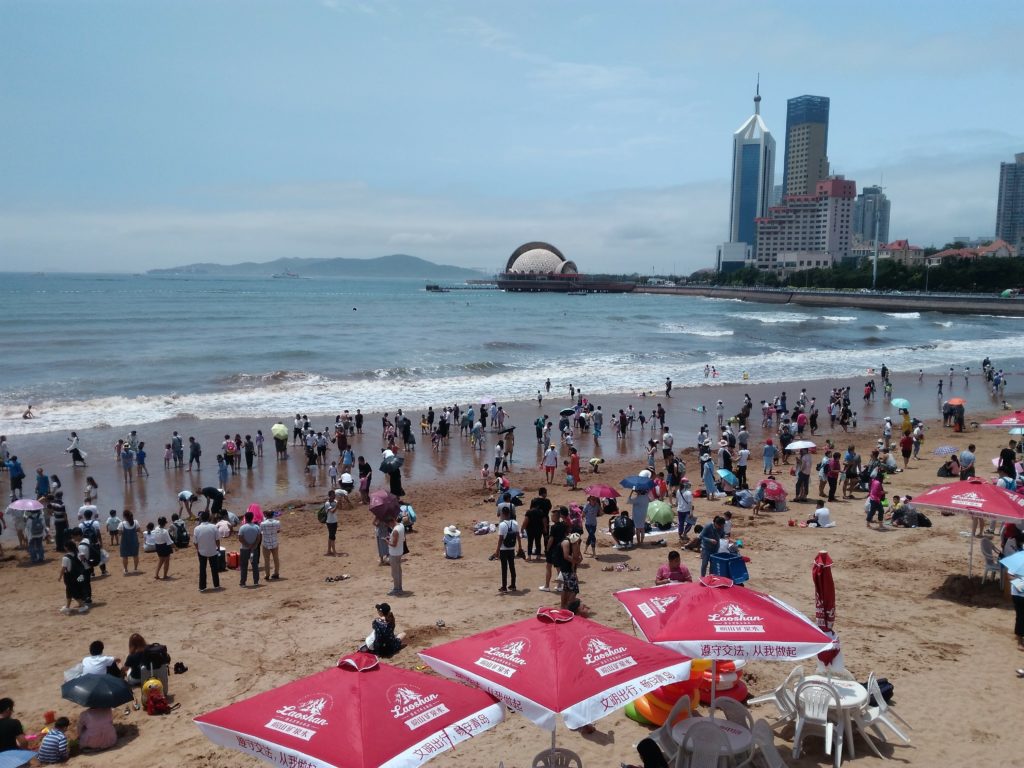
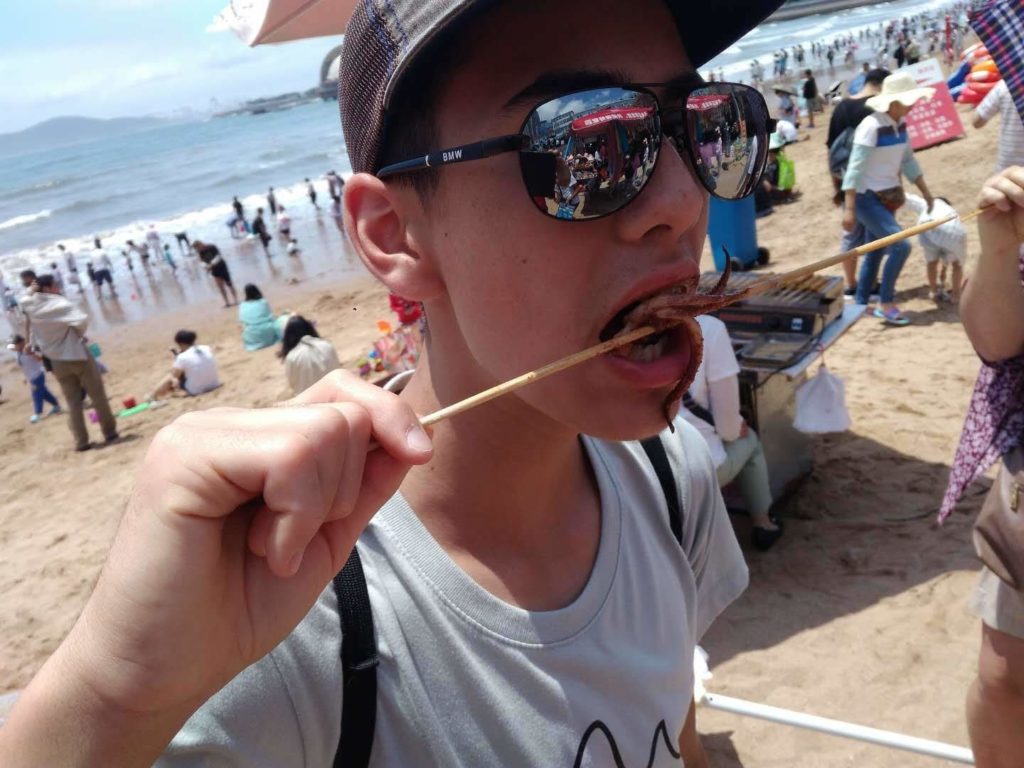
As we had an inside guide, we got to see both the tourist and the local side of the city.
As Qingdao is a figurative stone’s throw from Korea, Korean was on the menu one evening. Our family and our two friends walked along Qingdao’s downtown streets and through and past restaurant row and coffee alley, to find ourselves in front of a large apartment complex. Consulting her cell phone for directions (even this location was new to our friend) we soon realized that our Korean restaurant was actually run out of a 3-bedroom apartment. Ushered in past the living room which became the host stand, we were taken down the hallway to a bedroom turned dining suite. Leaving the ordering up to our local expert, Korean dishes from the Auntie who ran the restaurant were carried to us one by one. At one point she even rolled up our rice rolls in lettuce and seaweed and hand fed us! The food was delicious. After paying and incredibly low priced dinner bill, we walked out and rode down the elevator next to other residents – all the time wondering how many knew about the secret restaurant we had just visited.
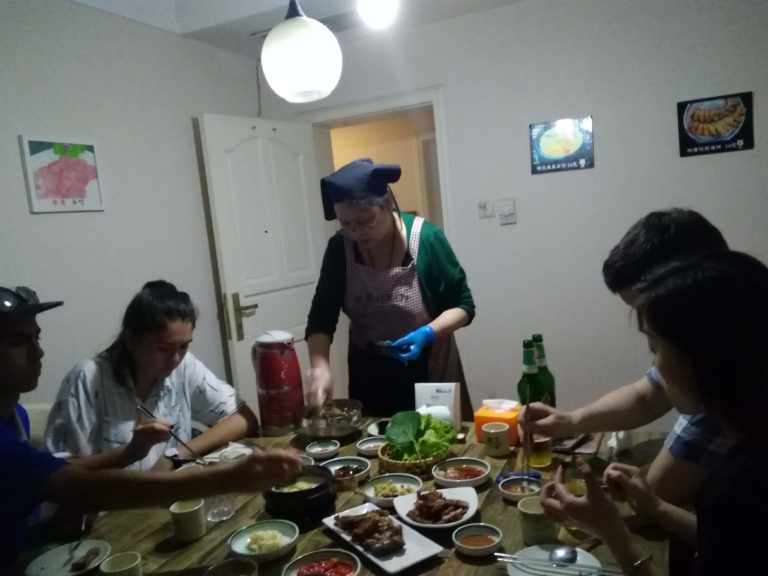
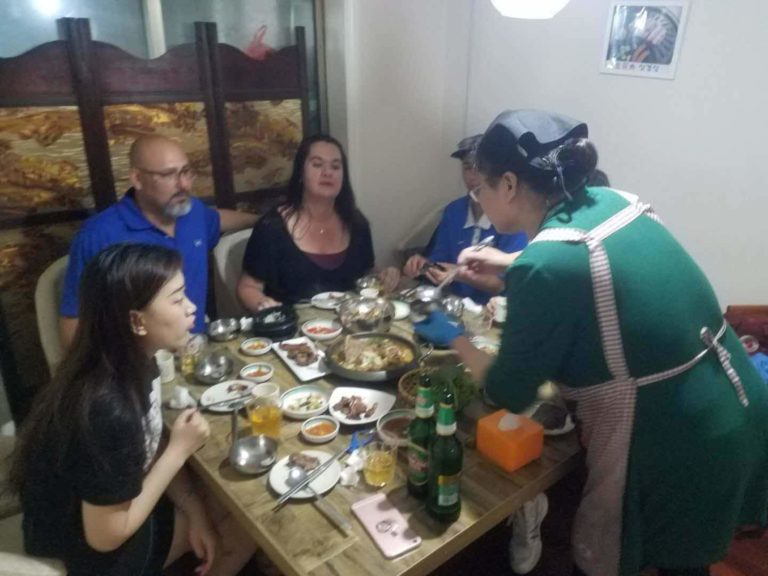
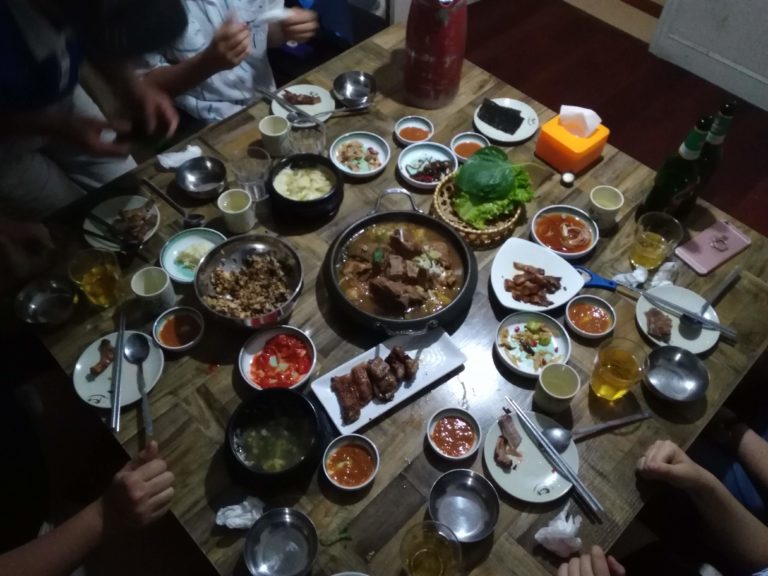
We were treated to another local feast the following day, when we attended our friend’s birthday party. Before the family feast at a local restaurant, we were invited to tea with Grandma. Grandma is the family matriarch who, at 85, has been a witness to a lot of history in this country. In the small kitchen in the back of her tiny apartment, under a poster of Mao and accompanied by an endless cup of tea (which was refilled by her son after every sip we took) she talked of coming to the city from the local farms as a young woman. Her older sister had her feet bound, but she didn’t so she had access to more work opportunities. We laughed and talked through our friend and all of us felt as if we were visiting our own grandmother as she was so welcoming and kind to us all.
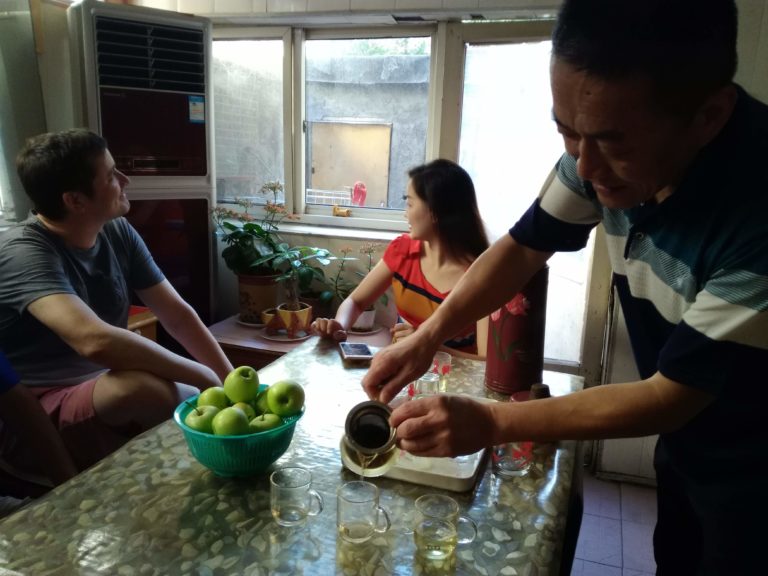
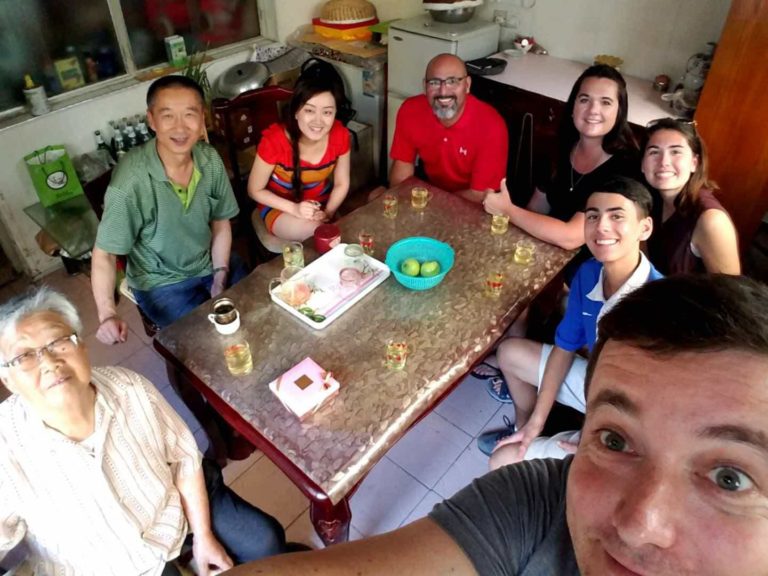
After Grandma’s tea, we headed over to the birthday dinner feast. And by feast, I mean FEAST. Our friend’s family had purchased 10 different types of seafood and the kitchen cooked them up into a variety of local dishes. Beer was poured all around and offered to the kids but when we declined their cups were endlessly filled with soda. Uncle sat next to Janna and Marco and showed them how to eat sea-snail, shrimp, and other sea creatures. To my delight (and pride) both of them bravely tried each dish out of both curiosity and respect. After getting our fill, the karaoke was turned on and the rest of the evening was spent belting out tunes or engaging in “ganbei”the Chinese tradition of downing your glass of beer at every cheer out of respect for your host. The beer glasses in China are small, but the toasts are not infrequent.


Ending our weekend in a beautiful town with lovely people, our memories of Qingdao will always place it on our map of China.